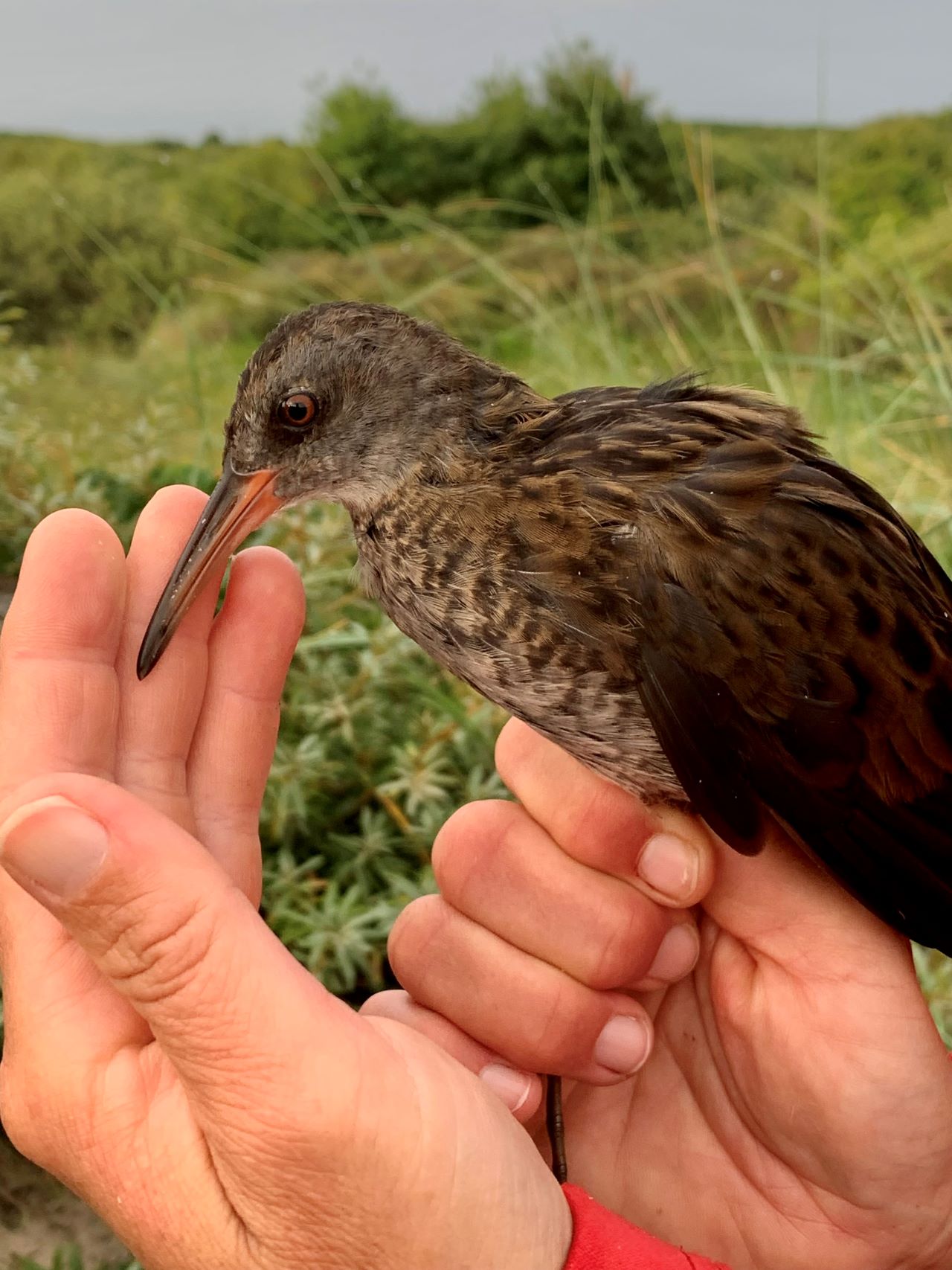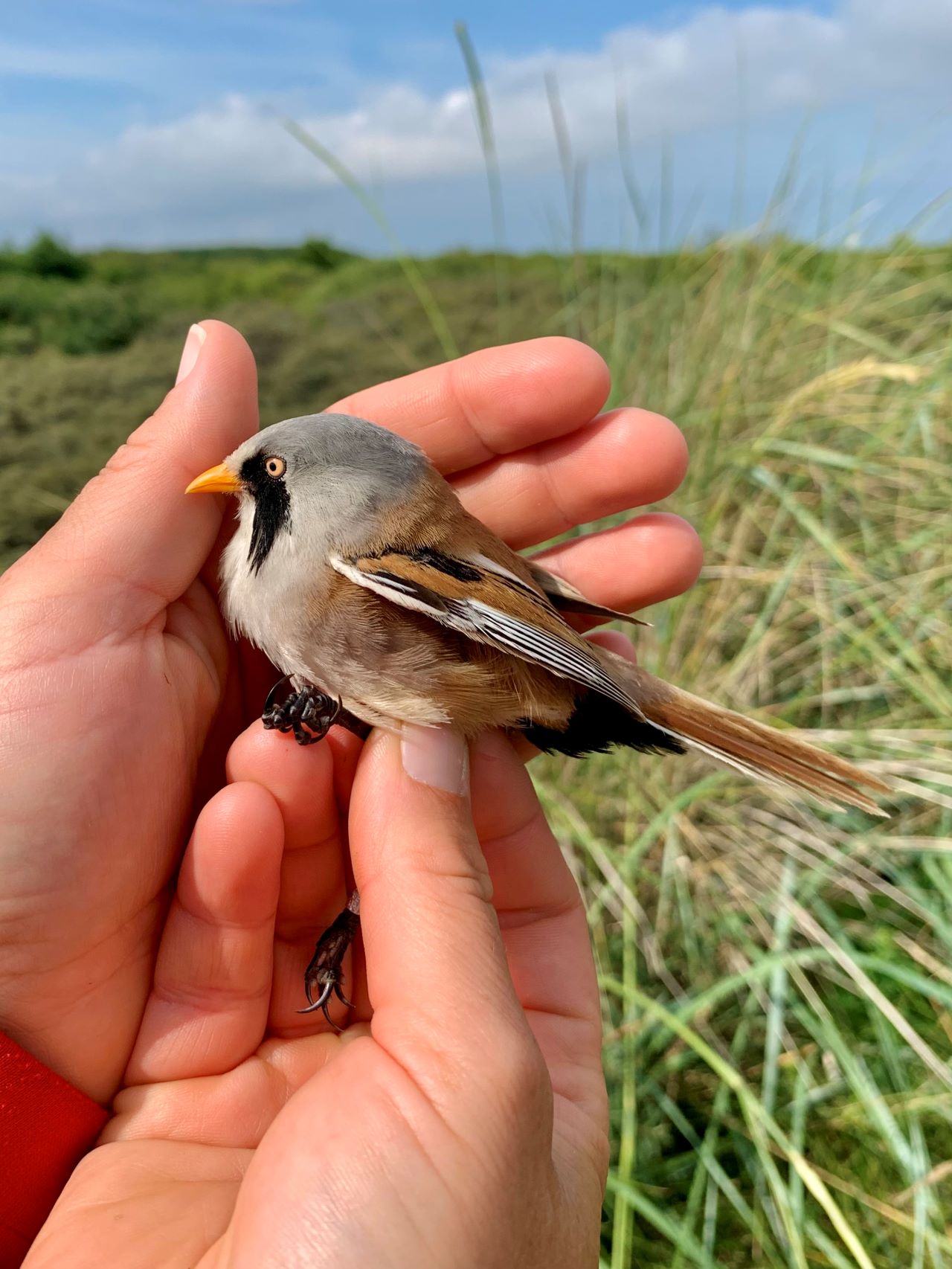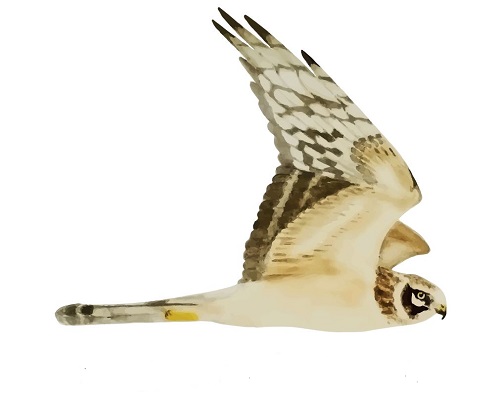Her på Skagen Fuglestations blog bringes korte nyheder i dagbogsformat om hændelser på fuglestationen.
Reed Birds
Tonight, again, a ringing session took place and around 30 visitors, all eager to see a storm petrel (stormsvale) came and sat through the night, not giving up hope until the end, however, no luck this time. Conditions would have been just like Thursday night, but maybe this time it was too quiet out at sea. Mind you, tonight it won’t be quiet for sure with several rain bouts moving through, so despite the somewhat uncertain weather, we decided to still give it one more try and who knows, the rain might yet push a storm petrel towards our shore.
Simon junior and I slept through the whole of tonight’s adventure, somewhat happy to not be woken up for a bird, so we could catch up on some sleep, since, again, we got up at 3am to go ringing at Kabeltromlen. After yesterday at Skarvsøen, the masses of mosquitoes came as a rather unpleasant surprise, although, of course, they are normal around this time of year, and they are important bird food, so often, lots of mosquitoes also means lots of birds and that’s what we had.
We started slow, but then the day turned out to be really good and we stayed up until noon. We caught mainly the local breeding birds, however, the first migrants are being put into the mix, for example, willow warbler (løvsanger). One of the locally born birds we caught was a water rail (vandrikse). It was still quite young, and it was really cool to finally see the birds up close that normally are very well hidden between the reeds, and although we hear them a lot, so we know they are there, it is very rare that one actually gets spotted.

Like most rails, water rails do not fly much, they just walk around between the reeds looking for whichever food they can find, not being too picky about what’s for dinner. Although they are one of the bigger birds we catch, their bodies are very slim, so they can move between the dense vegetation in the reeds. The northern and Asian populations are migratory, so despite the very short wings, this bird is able to fly quite long distances when the weather around here gets too cold and days get to short, so our new friend might spend the winter somewhere in the Mediterranean. However, like most bird species that rely only on wetland habitat, numbers of water rails are declining, so every young bird we get is a good sign for a potentially endangered species.
Towards the end of the morning, we also caught bearded tits (Skægmejse) again: first a male, and in the next net check the female that it was paired up with. It was cute to observe the close bond between the two birds: while the male was in the net, the female kept talking to him from the reeds. Then, when the male was gone, the female flew into the net (whether on purpose, because she thought it would be something like a magical gate to another world, or by accident, because she was trying to follow me, when I took her partner away, I don’t know). After we ringed and released the female, we could immediately hear them calling to each other, so obviously the male had waited for his partner close to the ringing table.
It was also cute to observe Simon junior when he got to ring the male, he was very happy, it being his first – and, of course, they are just very pretty birds:

After the ringing, we cut the all-too-fast-growing vegetation in the net lanes, went shopping for food, cleaned and slept a bit, while Sean was cooking delicious dinner once again (dear future volunteers: expectations are set really high now, so maybe you should start to practice your cooking already and find some good recipes!).
And finally, tonight Simon the first and Benjamin will again entertain any visitors hoping to still catch a storm petrel this night, while the rest of us get to sleep so tomorrow we can catch even more birds at Kabeltromlen. If you come for a visit, don’t forget to be prepared for mosquitoes!
Ringing (Kabeltromlekrattet)
Water Rail (Vandrikse) - 1
Munk (Blackcap) - 6
Tornsanger (Common Whitethroat) - 8
Gærdesanger (Lesser Whitethroat) - 6
Rørsanger (Reed Warbler) - 4
Kæersanger (Marsh Warbler) - 3
Gulbug (Icterine Warbler) - 2
Løvsanger (Willow Warbler) - 1
Gransanger (Chiffchaff) - 8
Musvit (Great Tit) – 1
Skægmejse (Bearded Tit) - 2
Lille Gråsisken (Common Redpoll) - 4
Rørspruv (Reed Bunting) - 1
Total: 47
People: Seán Walsh, Martina Hillbrand, Simon Kiesé, Simon S. Christiansen, Lisa Vergin, Anton Arnesson & Benjamin Bech
A link to today's observations from volunteers and local observers.



